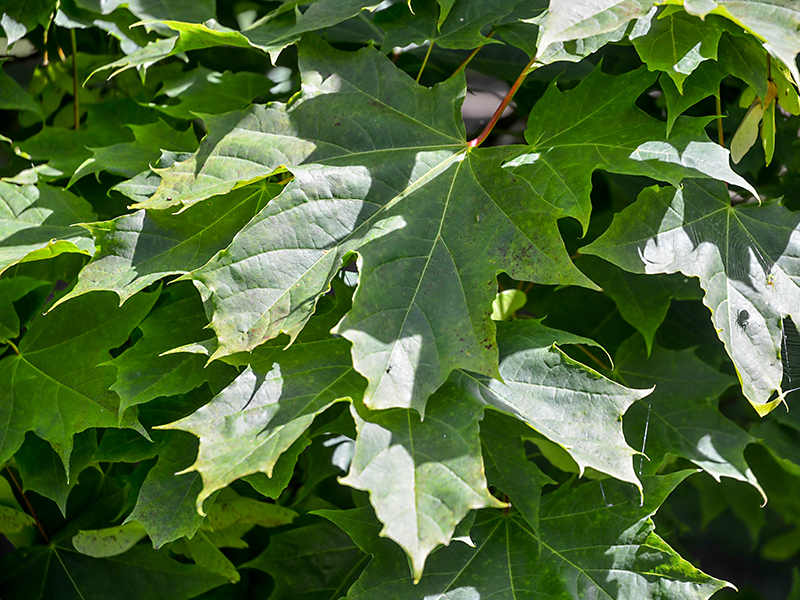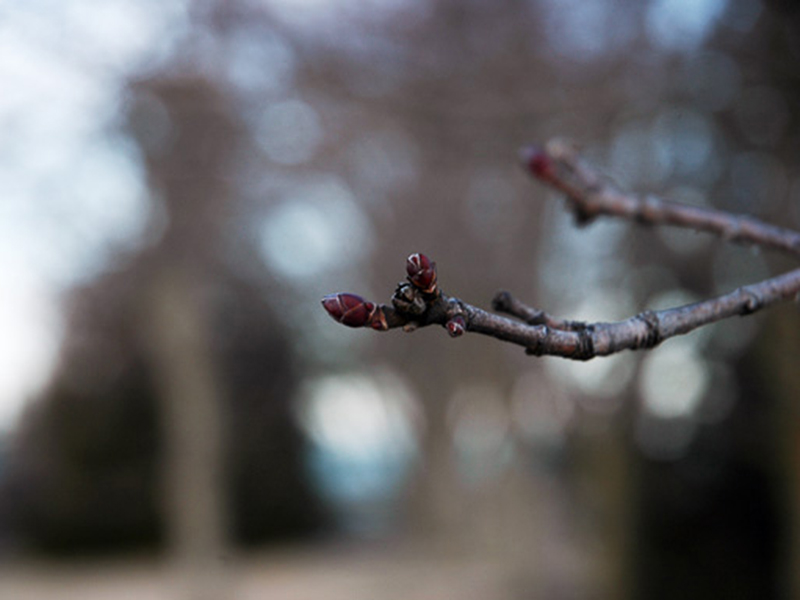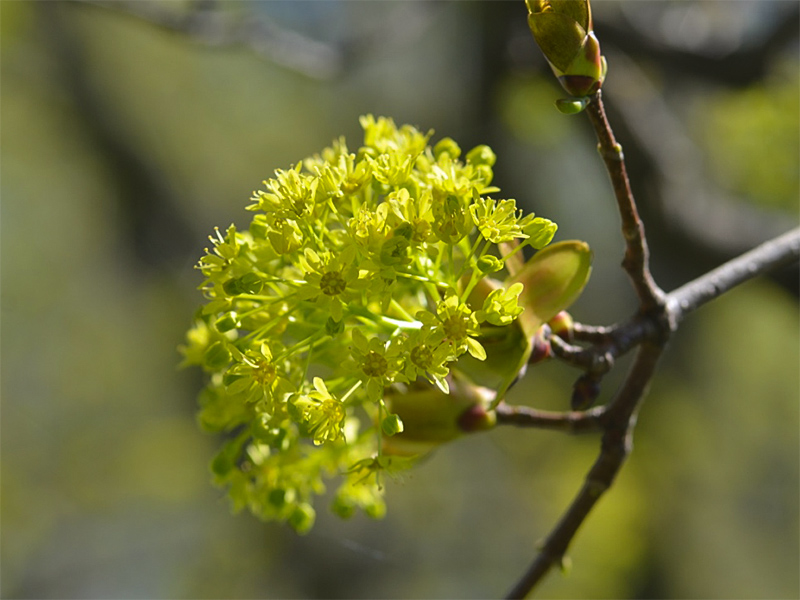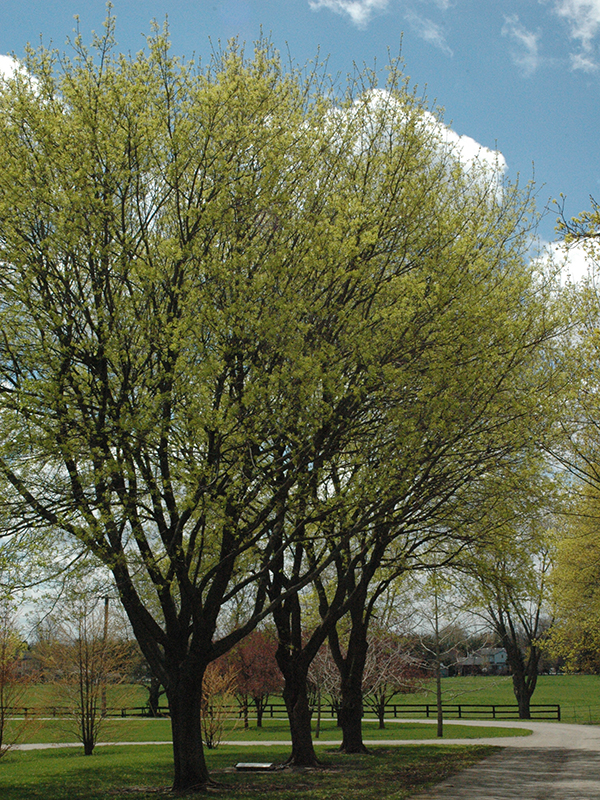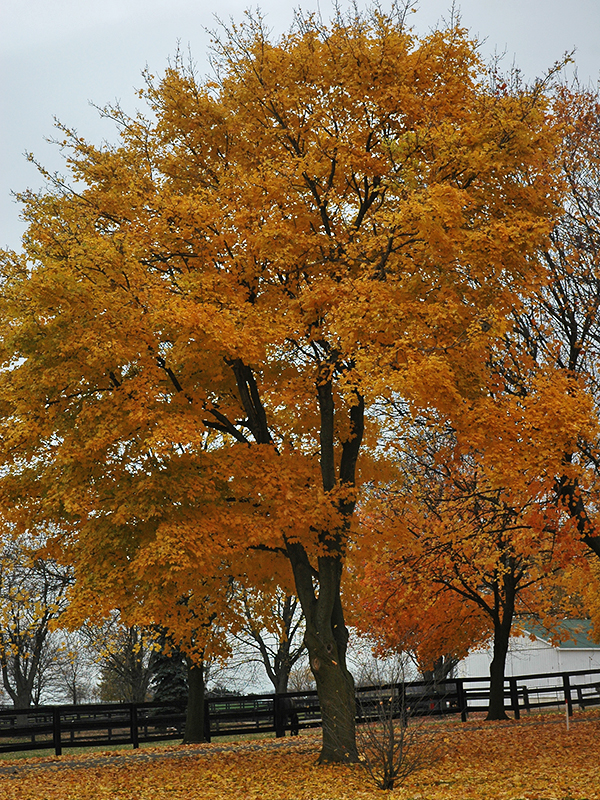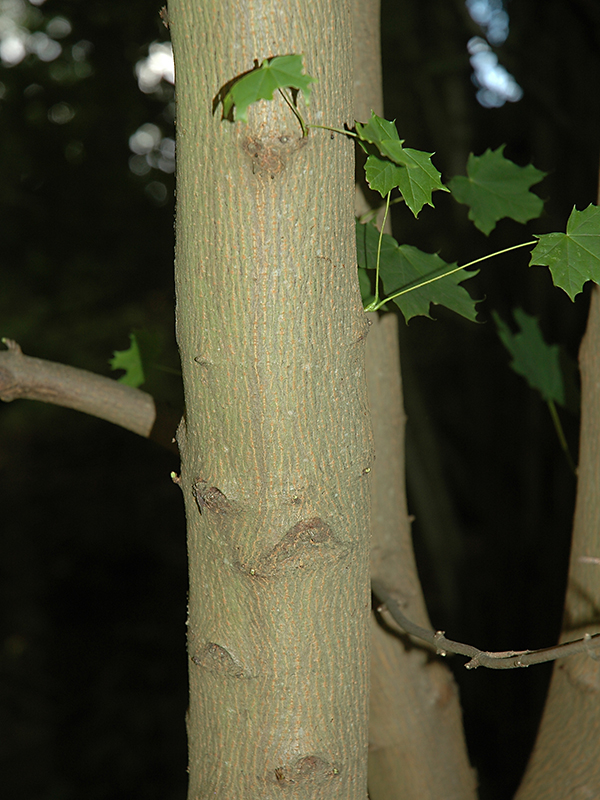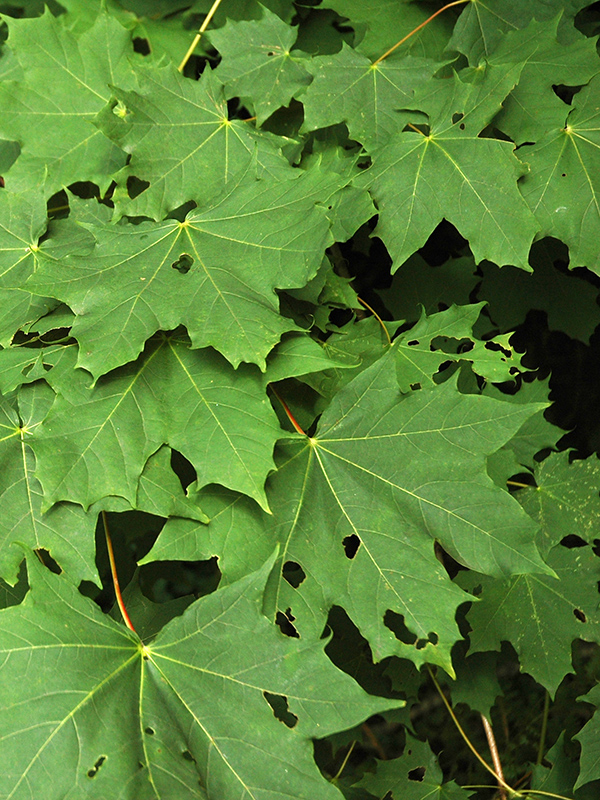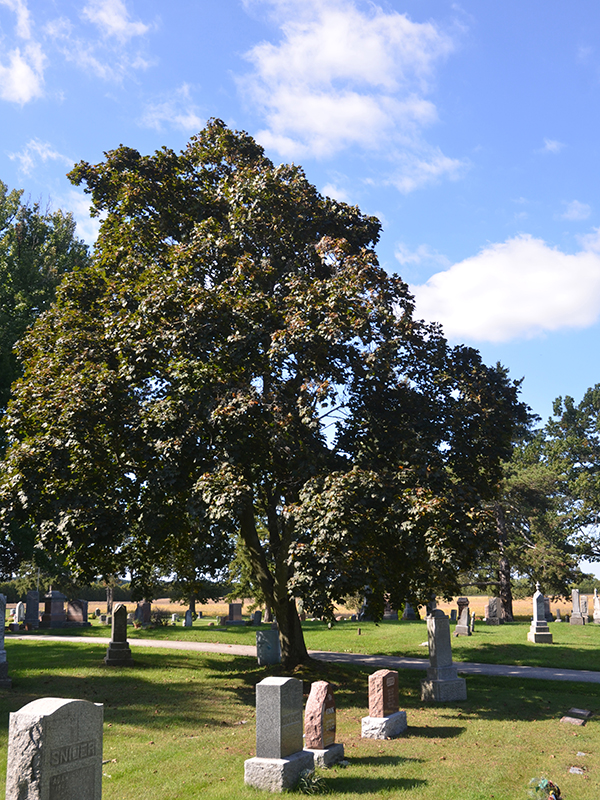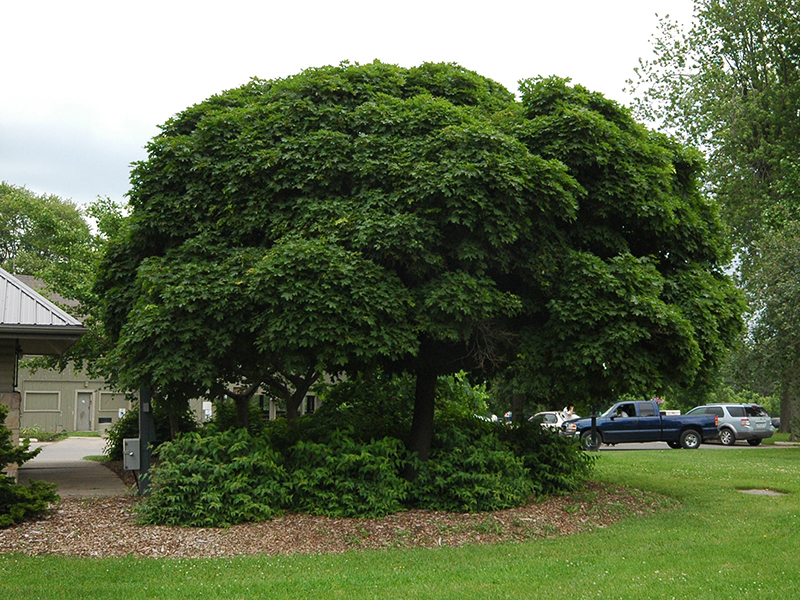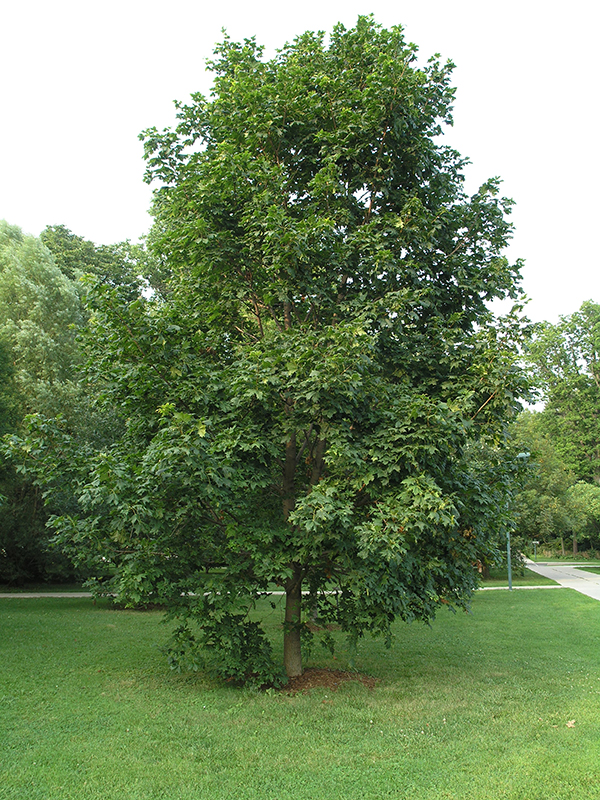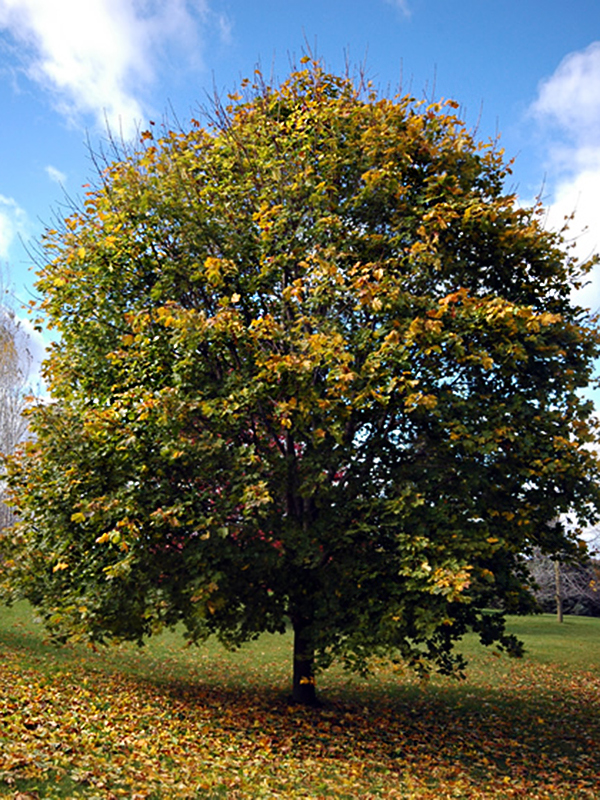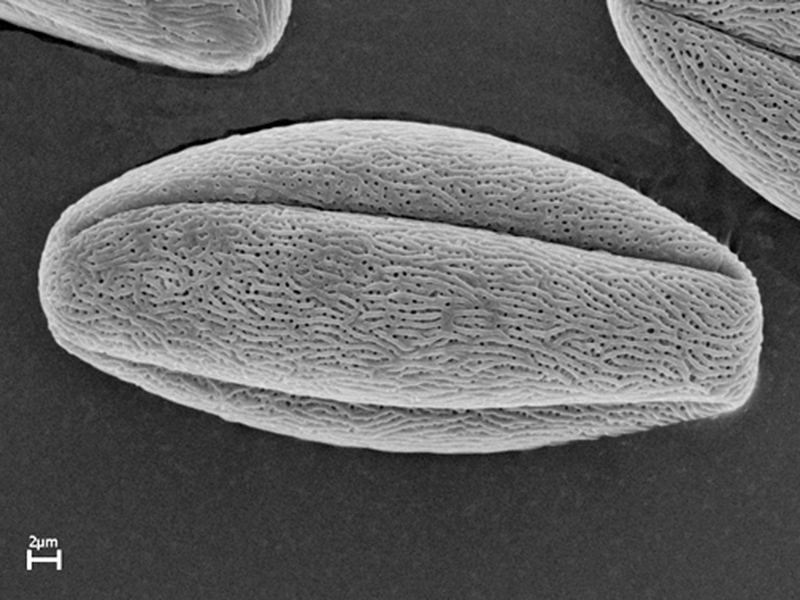| General Description | A very popular tree available in a wide variety of cultivars that is well suited to intense urban conditions. |
| ID Characteristic | When snapping the petiole the stem exudes a white latex sap. |
| Shape | Large rounded crown. |
| Landscape | Accent tree, mass plantings, city and courtyard gardens, border, screening, cottages, large properties, urban tree or as a specimen. |
| Propagation | Seed, or by softwood cuttings in June. |
| Cultivation | Plant in full sun to partial shade in moist, well-draining neutral to slightly acidic soil. |
| Pests | Maple tar spot, verticillium wilt. |
| Notable Specimens | The University of Western Ontario and Rayner Gardens, London, Ontario, Canada.
Westonbirt, The National Arboretum, Tetbury, Gloucestershire, England. |
| Habitat | Woods. |
| Bark/Stem Description | Dull, deep grey bark with regular shallow fissures. |
| Flower/Leaf Bud Description | Large rounded pronounced buds that are dark chestnut in colour.
|
| Leaf Description | Broadly palmate with three distinct lobes. Leaves to 10 cm across. Pale yellow in autumn. |
| Flower Description | One of the most floriferous of the Acer species. In fact I will begrudgingly admit that when in full flower in early spring it is quite attractive. Large clusters of yellow-lime-green flowers cover the entire tree. Very attractive to bees. |
| Fruit Description | Clusters of keys light beige in colour that grow up to 4 cm across, and are produced in copious quantities. |
| Colour Description | Pale yellow in autumn. |
| Texture Description | Medium textured tree. |
